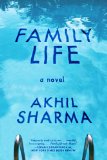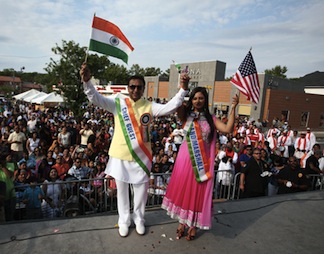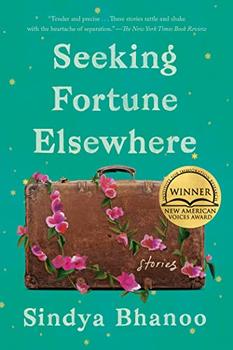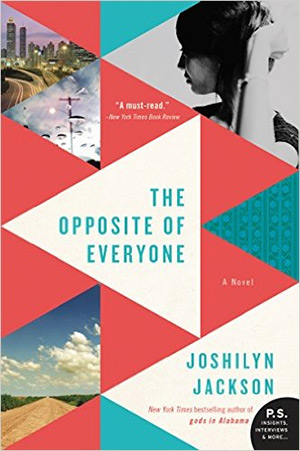Summary | Excerpt | Reviews | Beyond the book | Read-Alikes | Genres & Themes | Author Bio

Critics' Opinion:
Readers' Opinion:
First Published:
Apr 2014, 224 pages
Paperback:
Feb 2015, 224 pages
 Book Reviewed by:
Book Reviewed by:
Poornima Apte
Buy This Book
Heart-wrenching and darkly funny, Family Life is a universal story of a boy torn between duty and his own survival.
Hailed as a "supreme storyteller" (Philadelphia Inquirer) for his "cunning, dismaying and beautifully conceived" fiction (New York Times), Akhil Sharma is possessed of a narrative voice "as hypnotic as those found in the pages of Dostoyevsky" (The Nation). In his highly anticipated second novel, Family Life, he delivers a story of astonishing intensity and emotional precision.
We meet the Mishra family in Delhi in 1978, where eight-year-old Ajay and his older brother Birju play cricket in the streets, waiting for the day when their plane tickets will arrive and they and their mother can fly across the world and join their father in America. America to the Mishras is, indeed, everything they could have imagined and more: when automatic glass doors open before them, they feel that surely they must have been mistaken for somebody important. Pressing an elevator button and the elevator closing its doors and rising, they have a feeling of power at the fact that the elevator is obeying them. Life is extraordinary until tragedy strikes, leaving one brother severely brain-damaged and the other lost and virtually orphaned in a strange land. Ajay, the family's younger son, prays to a God he envisions as Superman, longing to find his place amid the ruins of his family's new life.
Heart-wrenching and darkly funny, Family Life is a universal story of a boy torn between duty and his own survival.
Excerpt
Family Life
My father has a glum nature. He retired three years ago, and he doesn't talk much. Left to himself, he can remain silent for days. When this happens, he begins brooding, he begins thinking strange thoughts. Recently he told me that I was selfish, that I had always been selfish, that when I was a baby I would start to cry as soon as he turned on the TV. I am forty and he is seventy-two. When he said this, I began tickling him. I was in my parents' house in New Jersey, on a sofa in their living room. "Who's the sad baby?" I said. "Who's the baby that cries all the time?"
"Get away," he squeaked, as he fell back and tried to wriggle away. "Stop being a joker. I'm not kidding." My father is a sort of golden color. Skin hangs loosely from beneath his chin. He has long thin earlobes the way some old people have.
My mother is more cheerful than my father. "Be like me," she often tells him. "See how many friends I have? Look how I'm ...
The choice of the first-person narrative is just right for the story, which above all, can be read as a special twist on the coming-of-age narrative. In fact, Sharma’s light-handed touch belies the expert way in which he slowly moves the focus away from the accident and the older brother to young Ajay. As the tragedy is now viewed through the rearview mirror, it’s all about the child and his self-centered preoccupation with young adulthood...continued
Full Review
(1016 words)
This review is available to non-members for a limited time. For full access,
become a member today.
(Reviewed by Poornima Apte).
 Ann Packer
There's nothing like the pleasure of being devastated by a short novel. Like Jhumpa Lahiri, Akhil Sharma writes of the Indian immigrant experience with great empathy and a complete lack of sentimentality. Family Life is a dark and thrilling accomplishment by a wildly gifted writer.
Ann Packer
There's nothing like the pleasure of being devastated by a short novel. Like Jhumpa Lahiri, Akhil Sharma writes of the Indian immigrant experience with great empathy and a complete lack of sentimentality. Family Life is a dark and thrilling accomplishment by a wildly gifted writer. Darin Strauss, author of Half a Life
Sharma's authority is mesmerizing and fun, and you'll read Family Life in one enthralled go.
Darin Strauss, author of Half a Life
Sharma's authority is mesmerizing and fun, and you'll read Family Life in one enthralled go. David Sedaris
Outstanding…Every page is alive and surprising, proof of [Sharma's] huge, unique talent.
David Sedaris
Outstanding…Every page is alive and surprising, proof of [Sharma's] huge, unique talent. Edmund White
Family Life is a terse, devastating account of growing up as a brilliant outsider in American culture. It is a nearly perfect novel.
Edmund White
Family Life is a terse, devastating account of growing up as a brilliant outsider in American culture. It is a nearly perfect novel. Gabe Hudson
Miraculous, heartbreaking, courageous, and awe-inspiring.
Gabe Hudson
Miraculous, heartbreaking, courageous, and awe-inspiring. Gary Shteyngart, New York Times bestselling author of Super Sad True Love Story
Family Life will cut your heart to pieces but it will also make you rejoice. The language, the humor, the sophistication, the empathy, the insight - all signal a new kind of literature about families and the bonds with which they hold us tight.
Gary Shteyngart, New York Times bestselling author of Super Sad True Love Story
Family Life will cut your heart to pieces but it will also make you rejoice. The language, the humor, the sophistication, the empathy, the insight - all signal a new kind of literature about families and the bonds with which they hold us tight. Jayne Anne Phillips
This uncompromising testament to the human cost of love is exhilarating in its intelligence and unerring perception.
Jayne Anne Phillips
This uncompromising testament to the human cost of love is exhilarating in its intelligence and unerring perception. Kiran Desai
Sharma is a rare master at charting the frailties and failures, the cruelties and rages, the altering moods and contradictions, whims and perversities of a tragic cast of characters. But this most unsentimental writer leaves the reader, finally and surprisingly, moved.
Kiran Desai
Sharma is a rare master at charting the frailties and failures, the cruelties and rages, the altering moods and contradictions, whims and perversities of a tragic cast of characters. But this most unsentimental writer leaves the reader, finally and surprisingly, moved. Mohsin Hamid
This is a wonderful novel by an excellent writer. Akhil Sharma's unsentimentality has the effect of making his writing uncommonly touching.
Mohsin Hamid
This is a wonderful novel by an excellent writer. Akhil Sharma's unsentimentality has the effect of making his writing uncommonly touching. Nell Freudenberger
An immigrant story like no other: funny and dark, unrelenting and above all, true.
Nell Freudenberger
An immigrant story like no other: funny and dark, unrelenting and above all, true. In Family Life, the Mishras make their home in the New Jersey suburb of Iselin. Iselin and its sister suburb, the township of Edison, are known to most Indians across the United States as the place to visit for anything Indian. It's here that you can indulge a craving for Mumbai street food, check out the latest fashions, or pick up a new Bollywood movie on DVD.
In Family Life, the Mishras make their home in the New Jersey suburb of Iselin. Iselin and its sister suburb, the township of Edison, are known to most Indians across the United States as the place to visit for anything Indian. It's here that you can indulge a craving for Mumbai street food, check out the latest fashions, or pick up a new Bollywood movie on DVD.
Ethnic enclaves, local regions with significant concentrations of people of a particular ethnicity have always been a part of the United States, a country made up of immigrants. These enclaves serve to cushion the harshness of immigration, giving residents a taste of the mother country before they get fully assimilated into the adopted one. While large urban centers have often ...
This "beyond the book" feature is available to non-members for a limited time. Join today for full access.

If you liked Family Life, try these:

by Sindya Bhanoo
Published 2023
These intimate stories of South Indian immigrants and the families they left behind center women's lives and ask how women both claim and surrender power - a stunning debut collection from an O. Henry Prize winner.

by Joshilyn Jackson
Published 2016
A fiercely independent divorce lawyer learns the power of family and connection when she receives a cryptic message from her estranged mother in this bittersweet, witty novel from the nationally bestselling author of Someone Else's Love Story and gods in Alabama - an emotionally resonant tale about the endurance of love and the power of stories to ...





The Flower Sisters
by Michelle Collins Anderson
From the new Fannie Flagg of the Ozarks, a richly-woven story of family, forgiveness, and reinvention.

The House on Biscayne Bay
by Chanel Cleeton
As death stalks a gothic mansion in Miami, the lives of two women intertwine as the past and present collide.

The Funeral Cryer by Wenyan Lu
Debut novelist Wenyan Lu brings us this witty yet profound story about one woman's midlife reawakening in contemporary rural China.
Your guide toexceptional books
BookBrowse seeks out and recommends the best in contemporary fiction and nonfiction—books that not only engage and entertain but also deepen our understanding of ourselves and the world around us.